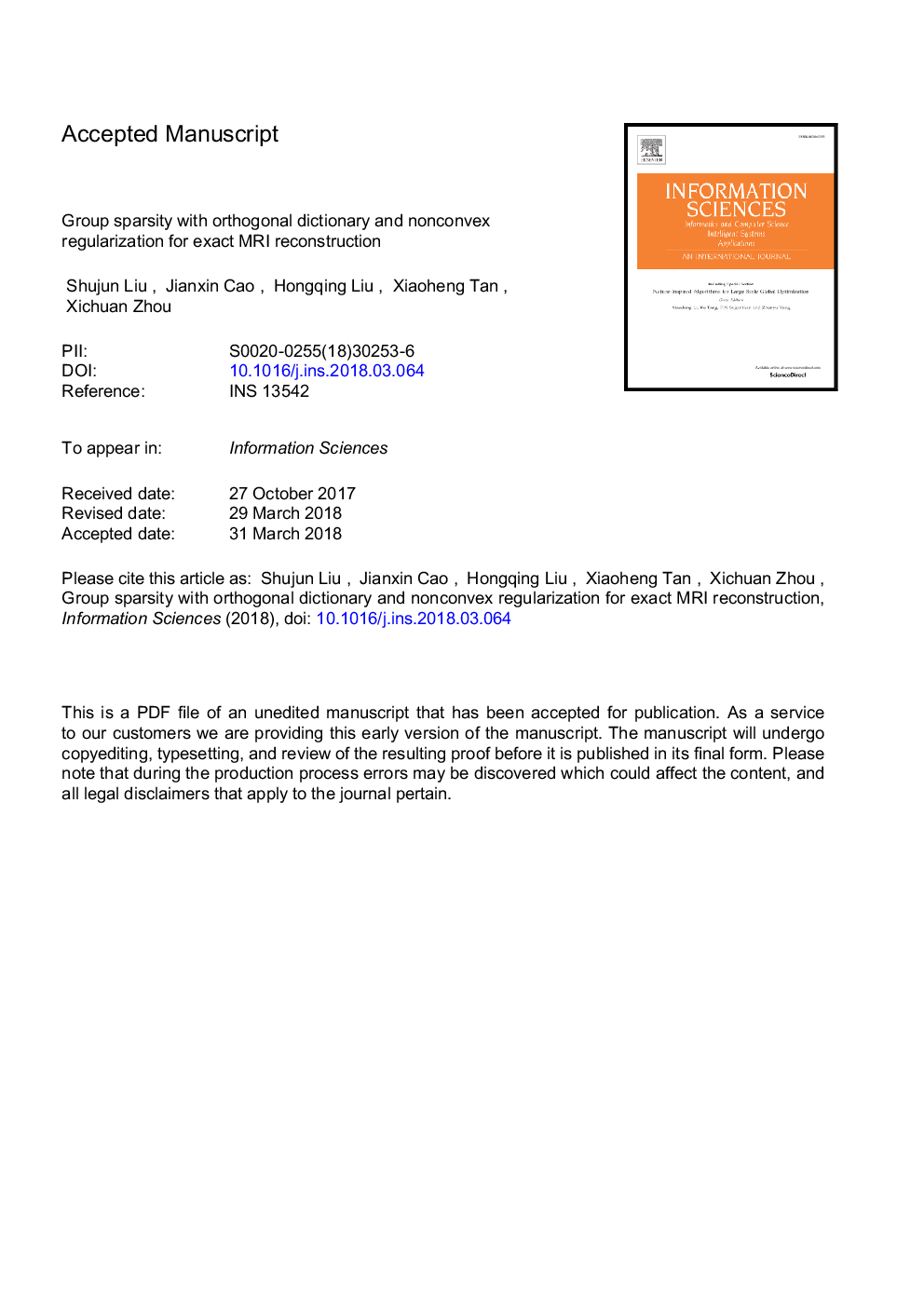| Article ID | Journal | Published Year | Pages | File Type |
|---|---|---|---|---|
| 6856442 | Information Sciences | 2018 | 26 Pages |
Abstract
Compressed sensing MRI (CS-MRI) significantly accelerates scanning time via accurate reconstruction of the image from undersampled k-space data. In this work, combining two priors of sparsity and nonlocal similarity, an algorithm of group sparsity with an orthogonal dictionary (GSOD) is proposed to realize CS-MRI reconstruction within an optimization framework. To efficiently solve the resultant non-convex optimization, a lower bound of the original problem is derived, and generalized soft-thresholding is then applied to obtain the solution from that lower bound in a fast and accurate manner. Moreover, considering the important role of the dictionary in sparse representation, a modified GSOD (M-GSOD) approach is also developed in which the orthogonal dictionary is adaptively learned from the group. It is proven that the proposed sparse coding model in the M-GSOD is equivalent to the low-rank model, and the connection between the two independent models is established for the first time. Finally, a fast and accurate algorithm to solve M-GSOD is provided. Compared with the current methods, the proposed methods demonstrate a state-of-the-art performance, which shows the correctness of the non-convex regularization and optimal dictionary learning.
Related Topics
Physical Sciences and Engineering
Computer Science
Artificial Intelligence
Authors
Liu Shujun, Cao Jianxin, Liu Hongqing, Tan Xiaoheng, Zhou Xichuan,
